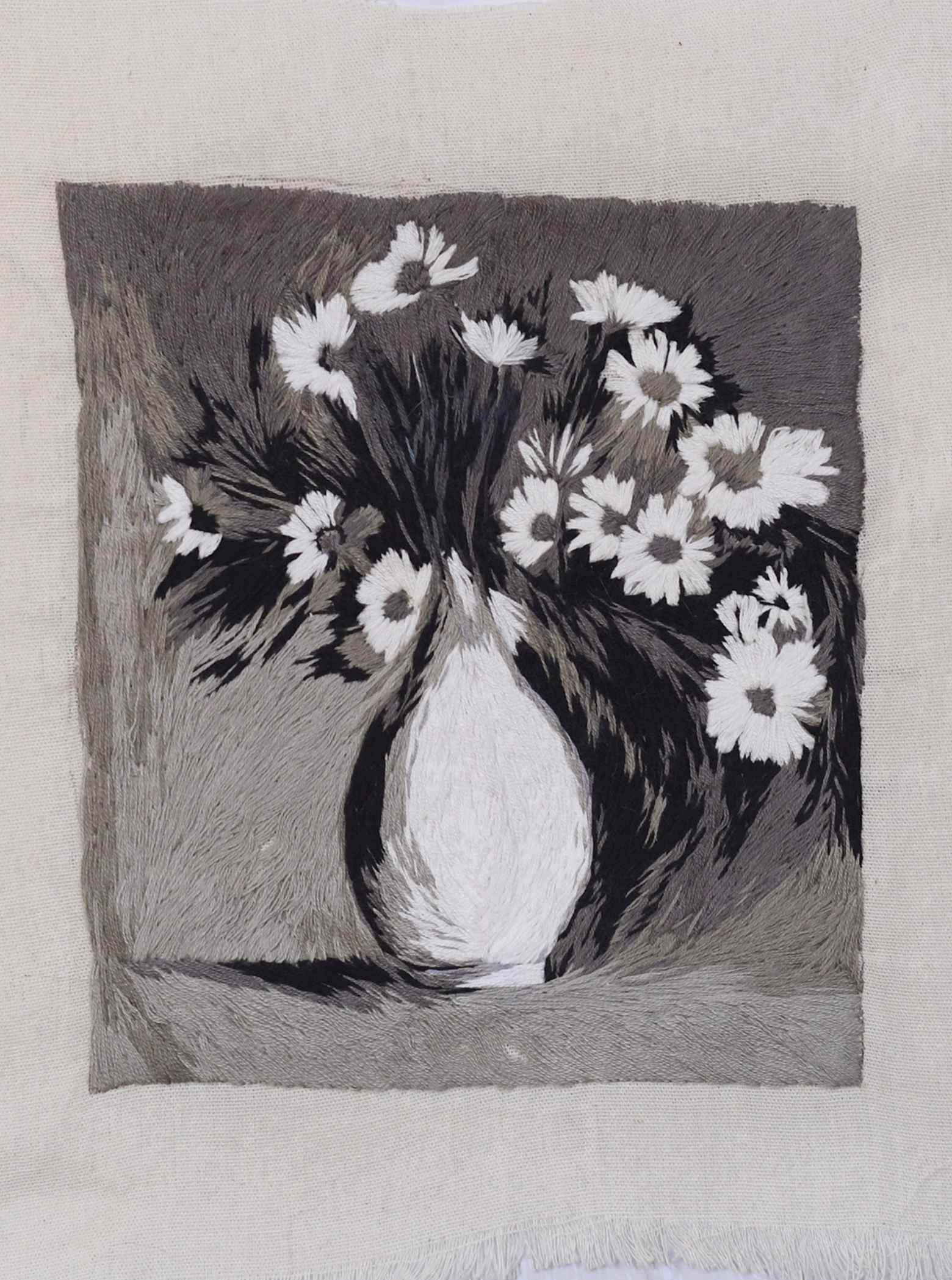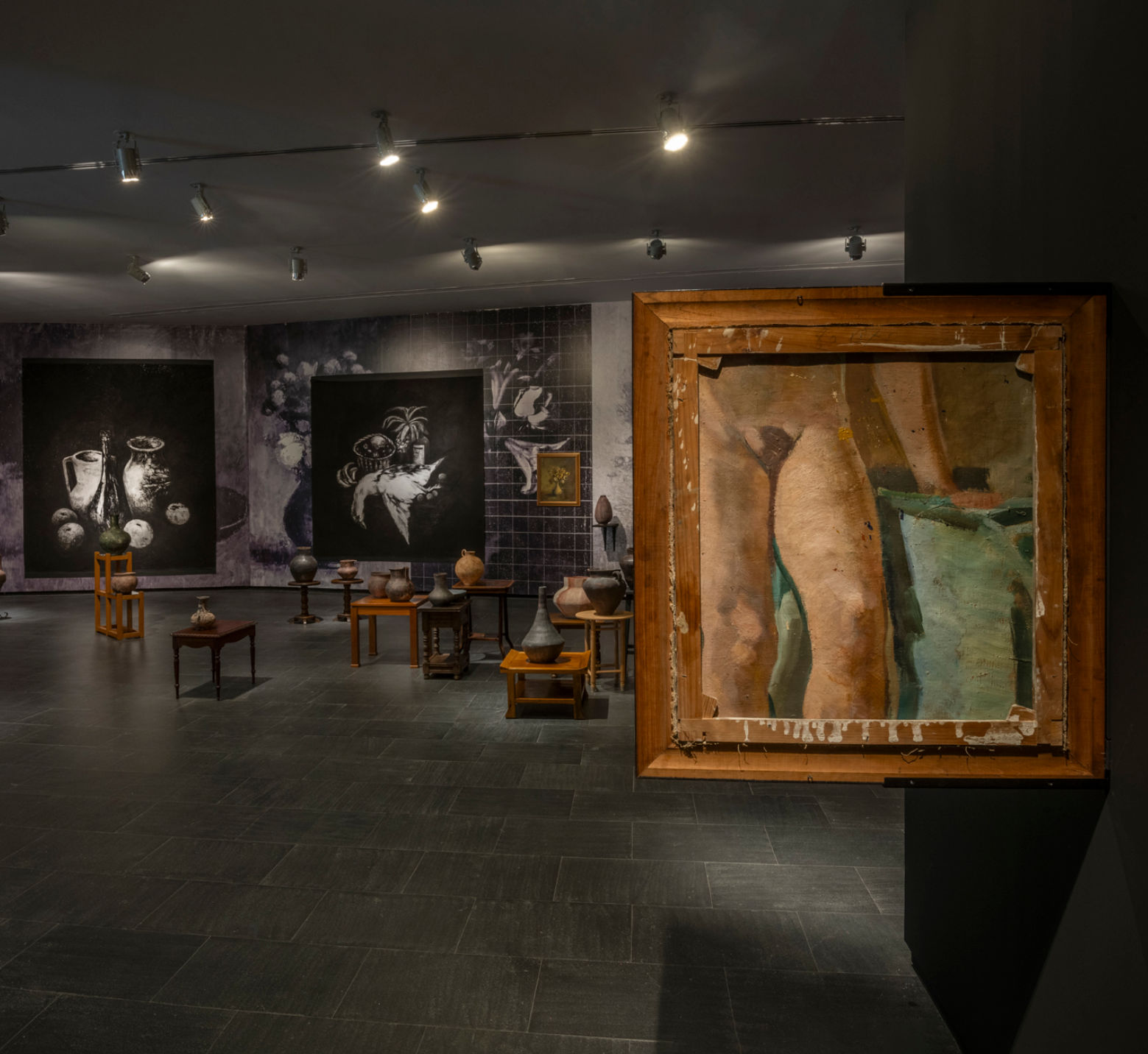Ana Gallardo
gallery 9
Tembló acá un delirio
The work of Ana Gallardo emerges from the need to make mourning into a public process through a perspective that centers the open wound of violence against women. Rather than occupying the place of the victim, Gallardo stages a desire for personal and collective revenge based on the possibility of mobilizing the materials of mourning through an artistic practice that repairs and enables becomings. The autobiographical dimension of this journey through twenty years of artistic production is materialized in a series of artworks involving oral testimonies, confessions, narratives written by many hands and scenes that confuse that which is ours and that which is other, through which Gallardo asks how and with whom we can learn to live and age otherwise.

A product of her rejection of death as a repressive technique, her resentment is oriented toward the capacity for creating worlds and building new kinds of connections with living things; quite distinct, then, from the rancorous politics of hate coming from those who feel they have lost their privileges, the masters of terror and forgetting, those who threaten to disappear the bodies and experiences of mothers, daughters and grandmothers who are unable to adapt to colonial and patriarchal axioms.
Out of the artist’s place in this pedagogy of cruelty emerges the experience of the commons. What drives Ana Gallardo to never renounce her will to creation is to give substance to that which is absent, to make mourning active, keeping present those who die before their time, in pain and agony, while attempting to realize the dreams of other women, still alive, who are punished for challenging the mandates of capitalist social reproduction.
Turning away from the identitarian strategies that celebrate suffering as the truth of each subject, this journey through twenty years of artistic production emphasizes vitalism and nonconformity, even with one’s self. The commitment to a struggle forged in solidarity with those who are different but equal is materialized in a series of artworks involving oral testimonies, confessions, narratives and scenes of a practice that confuses that which is ours and that which is other.

Tembló acá un delirio isn’t presented as a retrospective; it proposes one of many possible narratives. It is a log of Ana Gallardo’s detours in the Global South and its geographies of necropolitical and extractivist violence. The exhibition’s autobiographical dimension is not enclosed in the theater of the I, but instead reveals the limits of all subjective experiences. That her artistic practice is conceived as a technology of self-knowledge and mutual aid through the participation of a choir of voices that form a family beyond blood ties, like in Sophocles’ Antigone, creates a zone of continuity in which the critique of subjugation—whether due to race, sex, age, class or other forms of repression—moves like an earthquake, with its aftershocks in the defense of the territory. The traumas of mountains and bones lost in the jungle aren’t so different from ours. Land is the material of memory.
Artist: Ana Gallardo (Argentina, 1958)
Curatorship: Alfredo Aracil and Violeta Janeiro, in collaboration with Alejandra Labastida
Publicación
Publication
Ana Gallardo. Tembló acá un delirio
Authors : Alfredo Aracil, Violeta Janeiro Alfageme, María Alejandra Gatti, Verónica Gerber Bicecci, Alejandra Labastida
Language : Spanish & English
Editor: MUAC, UNAM





